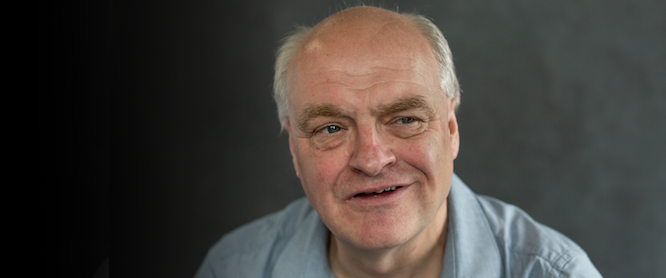By Mark McSherry
ESG investment frameworks “are profoundly damaging to the prospect of changing the corporate sector” according to James Anderson, the outgoing joint manager of Baillie Gifford’s high-flying flagship fund, the £20 billion Scottish Mortgage Investment Trust plc.
ESG stands for “environmental, social and governance” in the investment industry.
Anderson said many ESG frameworks are “ill-thought through metrics and distractions” and that some recent criticism using standard ESG metrics of Tesla — a huge Baillie Gifford investment — is “dangerous rubbish.”
He revealed that the Edinburgh fund has on occasion “painfully clashed with Mr Musk in advocating deeper board oversight or greater restraint” and has “risked the wrath of right-thinking people by backing the company – on Musk’s huge but demanding incentives for instance.”
Writing in a Baillie Gifford publication, Anderson said: “It’s wonderful that fund managers have noticed that serious capital allocation extends beyond consideration of short-term financial returns.
“But opportunity is fast turning into tragedy.
“Morality cannot be outsourced.
“It has to be painstakingly won through deeply held but idiosyncratic investment philosophies and expressed through determined but rewarding efforts to select and influence individual companies.
“True long-term impact for the good of economies, societies and the Earth cannot be anchored in the diktats and banal mismeasurements of the ESG dogmatists, who have come to enjoy such unjustified influence.”
Anderson added: “Let’s try to explore this by an example.
“As readers will be aware, we’ve been a large and long-term shareholder, often the largest external shareholder, of Tesla.
“To paraphrase Elon Musk, he chose to build Tesla because it was the best way to combat the most serious issue facing the world.
“If he had just wanted to make money then making cars was not the easy way forward.
“By now it is obvious to even the most myopic observer that Tesla has turned the automobile industry in an increasingly sustainable direction.
“It’s not just that Tesla itself replaces internal combustion engines but much more that it has forced change in a recalcitrant industry.
“Without Tesla the current transition would have been fatally later and slower – perhaps beyond a climate tipping point.
“Yet the standard metrics tell me that Tesla itself pollutes, has ill-defined future metrics and that it takes up a fair portion of Scottish Mortgage’s carbon exposure.
“Now I think this is dangerous rubbish.
“If measure we must, then the relevant number isn’t the carbon Tesla expends, not even the gap between what it emits versus what a traditional manufacturer would, not just the driving emissions removed and pollution deaths avoided but all those plus the resultant benefits of its transformation of the rest of the industry.
“It’s all the electric vehicles made by others from VW to GM because Tesla changed the world.
“That’s the scale of the contribution.
“If that’s Tesla’s role, what is ours?
“I think we can claim that without Baillie Gifford’s support and engagement Tesla’s success might have been even more difficult and less than assured.
“I don’t mean to sound vainglorious but we may have mattered.
“After all, at one prolonged and crucial point there were no other major institutional backers and few sources of finance amid the short-sellers’ onslaught.
“I’m sorry but I think this made more of a societal contribution than all the invisible ESG measures and pontificators have ever done.
“But let’s go further.
“Tesla itself disobeys many governance metrics.
“From the board composition to incentive schemes to tensions with the SEC to Twitter radicalism, this is not a company to gladden ESG and voting advisor hearts.
“Sometimes we have painfully clashed with Mr Musk in advocating deeper board oversight or greater restraint.
“At other times we’ve risked the wrath of right-thinking people by backing the company – on Musk’s huge but demanding incentives for instance.
“Whatever the issue though, to have influence you have to fight and earn a voice over years of ownership.
“Now let’s take our example one final stage forward.
“I do not believe that Tesla would have changed the world for the better if it had been a normal company paying heed to the standard governance codes.
“For a company and a CEO so dependent on radical thought, so blindingly impatient of conventions and constraints, it’s hard to conceive that ‘normal’ behaviour would have been feasible or beneficial.
“Would a standard board have risked all on a revolution that came within weeks of disaster?
“Would Musk have survived the many moments of controversy?
“I doubt each of these.
“Now Tesla may be an extreme example but aren’t all companies that transcend the mediocre (and even the good) fundamentally unreasonable?”
Baillie Gifford employs about 1,500 people and had assets under management and advice of £352 billion as at June 30, 2021.
The fund management firm is headquartered in Edinburgh and has offices in Buenos Aires, Dublin, Frankfurt, Hong Kong, Krakow, London, New York, Shanghai, Toronto and Zurich.
Anderson concluded: “Out of cowardice I’ve left perhaps the most contrarian thought to last.
“It’s that ESG frameworks are not just gestures, not just ill-thought through metrics and distractions, but that in aggregate they are profoundly damaging to the prospect of changing the corporate sector – even the world – for the better.
“If we believe, demand and enforce a standard template for all companies, in all industries and in all countries then we will have an arid, unimaginative, fearful and rule book-driven world.”
